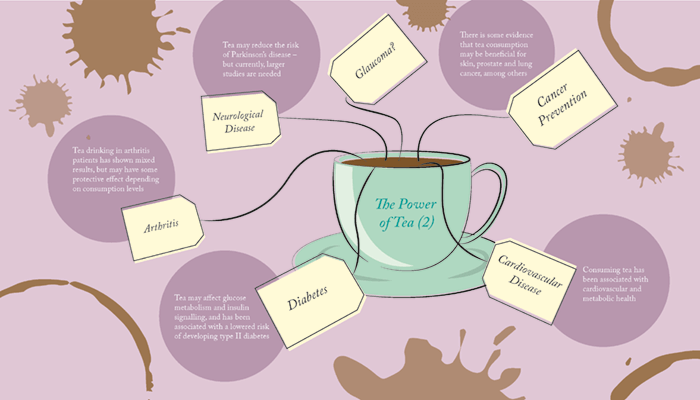
For thousands of years, and in many different cultures around the world, hot tea has been considered a health-giving brew. The humble beverage has been linked to the treatment of many diseases, from cancer to cognitive decline – and now glaucoma, according to a recent study published in the British Journal of Ophthalmology (1). “Previous studies have suggested that caffeine consumption may be associated with glaucoma. We thought it would be interesting to take this one step further to see if there were differences between different types of caffeinated beverages,” says co-author Anne Coleman, Fran and Ray Stark Foundation Professor of Ophthalmology, UCLA Stein Eye Institute, USA.
The US National Health and Nutrition Examination Survey (NHANES) of 1,678 participants, found that drinking hot tea daily conferred a 74 percent decreased risk of being diagnosed with glaucoma – but interestingly, no link was found between glaucoma risk and coffee, iced or decaffeinated tea, or soft drinks. According to Coleman, the protective effect could be related to the polyphenols in hot caffeinated tea, as they have been shown to be neuroprotective in animal models. But she also acknowledges that there could be beneficial lifestyle factors associated with drinking tea that were not covered by the study. The retrospective observational study also didn’t look at factors such as cup size, brewing time or tea type. “The next step is to look for this association in other large observational studies. The ultimate goal would be to randomize individuals to drinking hot caffeinated tea versus not, although this would be difficult to do as many people have a favorite beverage and do not want to change,” says Coleman. Time for tea?
References
- CM We et al., “Frequency of a diagnosis of glaucoma in individuals who consume coffee, tea and/or soft drinks”, Br J Ophthalmol, [Epub ahead of print] (2017). PMID: 29242183. N Khan, H Mukhtar, “Tea and health: studies in humans”, Curr Pharm Des, 19, 6141–6147 (2013). PMID: 23448443.
